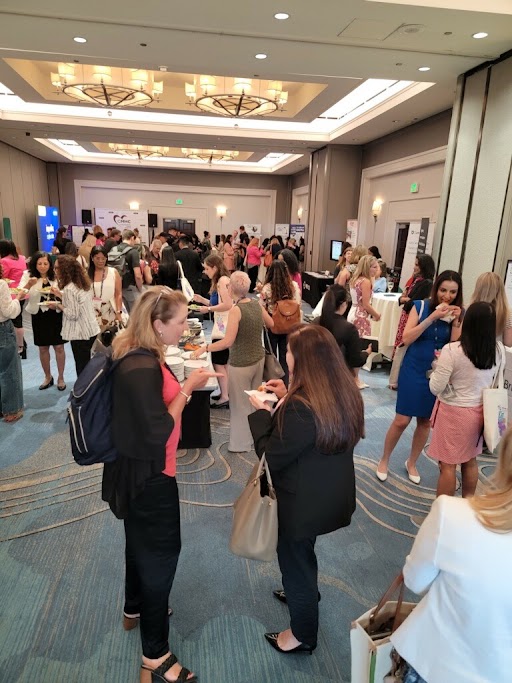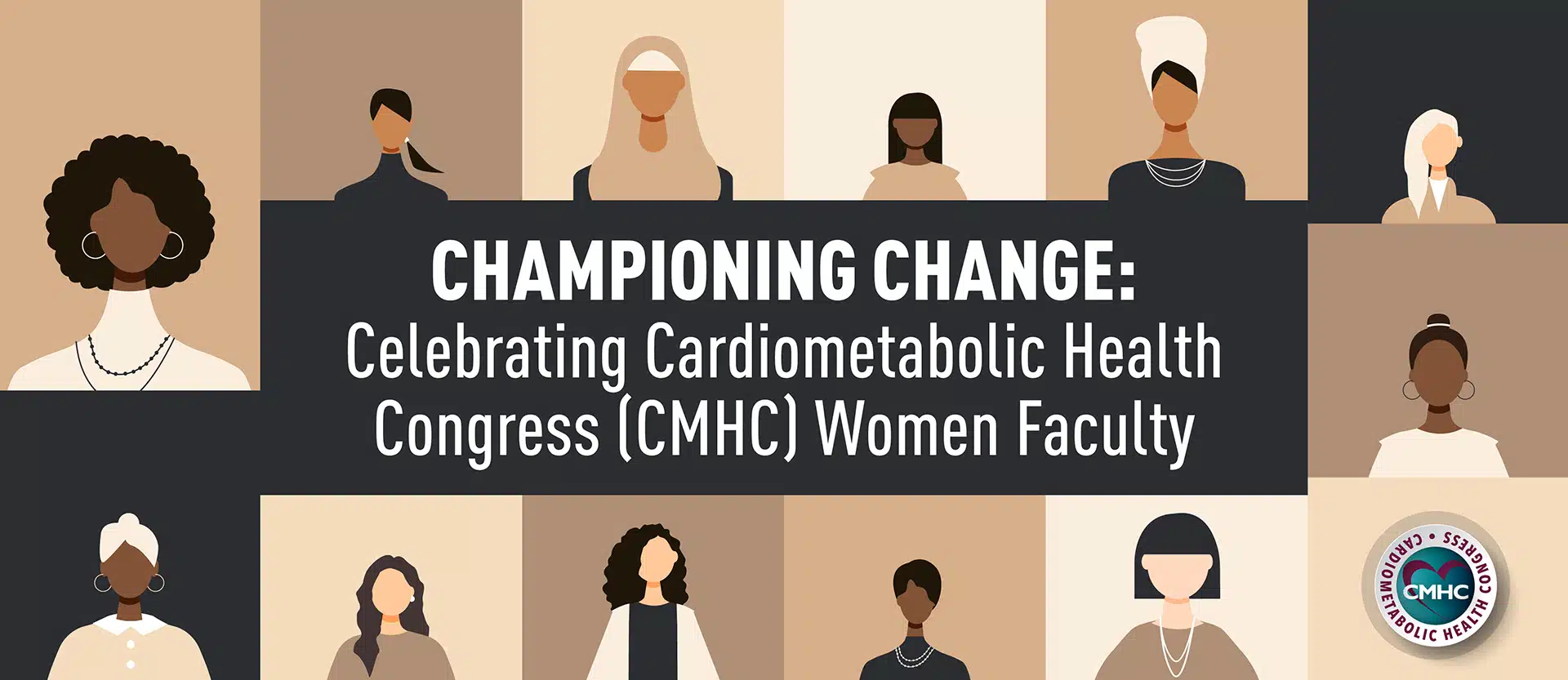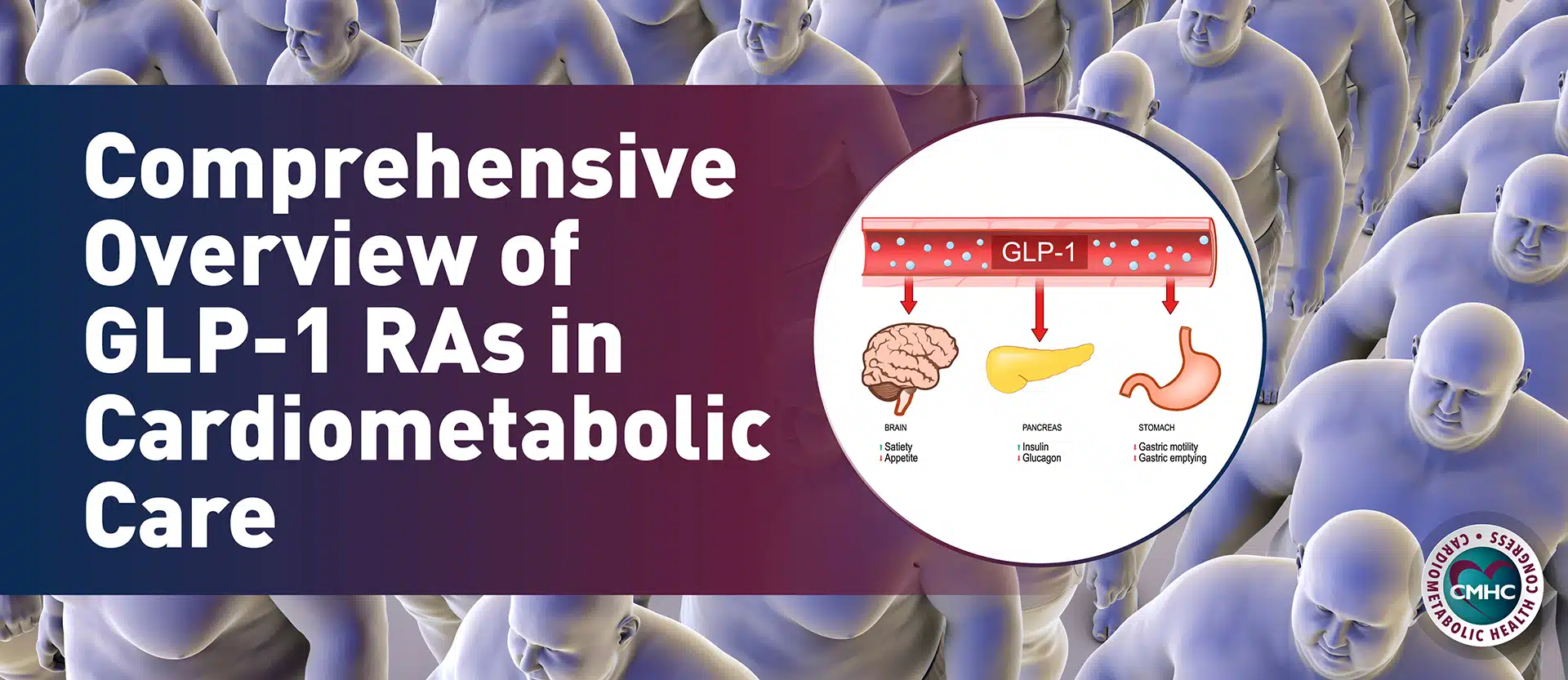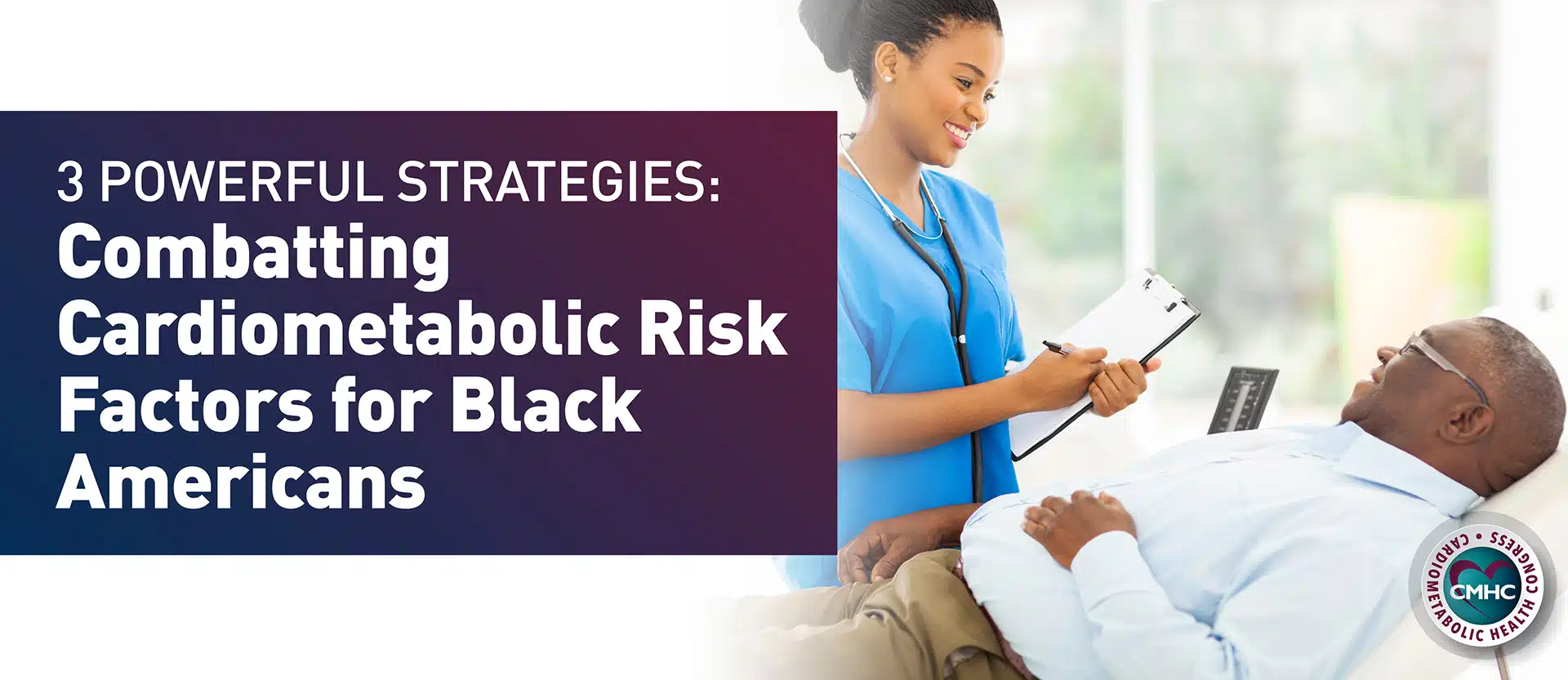The 2023 Women’s Cardiometabolic Health and Wellness Masterclass began on Thursday, Aug. 17 at the Laguna Cliffs Marriott Resort and Spa in Dana Point, California. The annual event, hosted by Cardiometabolic Health Congress, presented medical education content alongside professional development activities and wellness breaks. Attendees were able to recharge, learn and engage with their community from a beautiful seaside venue in Southern California.

Introduction and Opening Remarks
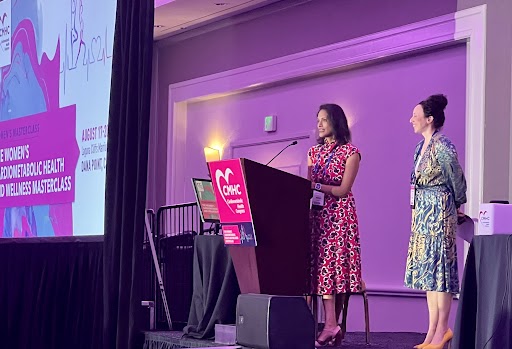
Conference co-chairs, friends and colleagues, Pam R. Taub, MD, and Erin D. Michos, MD, MHS, took the stage to welcome multidisciplinary providers from across the nation to the Laguna Cliffs Marriott Resort and Spa for the first day of the Women’s Cardiometabolic Health and Wellness Masterclass. Dr. Taub shared her hope that, beyond the medical education, each attendee would leave the meeting with at least three new friends. She mentioned how much it meant to her and Dr. Michos that they’d received many letters and emails from attendees of last year’s conference telling them about the new connections with colleagues that were made. “The learning is great, but you can get that at so many conferences. What you’re going to get here is an incredible spirit of collaboration and a community that uplifts each other,” said Dr. Taub.
Keynote Address on Unstoppable Resilience
The audience was gifted with an inspirational keynote speaker in Amanda Salas to open the conference and set the tone for the day’s resilience-themed sessions. When Amanda was 16 years old and studying as an exchange student in Argentina, she was involved in a catastrophic car accident. “My head hit the ceiling on the first of many rotations, and the next thing I remember was lying on the floor outside of the car looking up at the sky confused by numbness combined with pain all over my body and trying to decipher the Spanish being shouted nearby,” Amanda recounted of the moments after the crash. For the next several days, she was in and out of consciousness as doctors determined the extent of her injuries. She learned her fourth cervical vertebra had been shattered, and that bone fragments pinching her spinal cord had resulted in paralysis from the shoulders down.
When Amanda finally returned home to California eight months later, she vowed to accomplish her goals of completing her high school education (she spoke at her graduation ceremony), attending college (she has a degree from Stanford University), beginning a fulfilling career (as a successful TV producer), and being a wife and mother (she’s married with two beautiful children she conceived and birthed despite her injury). She compared her journey to something she learned from a woman she knew trying to swim the English Channel, saying that “sometimes just staying afloat is the most important part of the journey.”
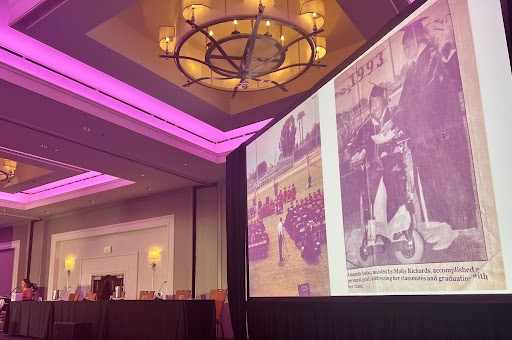
"My situation was similar to swimming across a massive body of water. I knew things would happen that would make it hard, but I just had to focus on one stroke at a time. If the water got too turbulent, I could flip over onto my back and take some deep breaths until I was ready to push forward again. The most important part was that I couldn't let myself sink under the surface of the water. If I did, I would need much more energy to get myself back up to the surface and there was even a chance that I might completely lose track of where the surface was. You just have to stay on top of the water and start swimming again when you're ready. Someday you'll get to the other side."
Amanda Salas
Cardiovascular and Cardiometabolic Health of Women Before, During and After Pregnancy
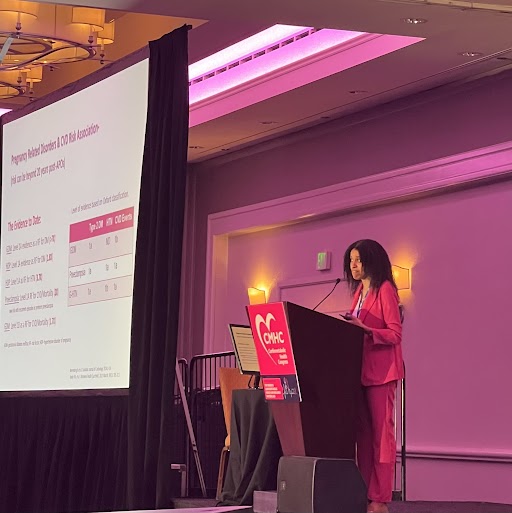
After a break in which attendees recharged with healthy snacks and refreshments while browsing the sponsorship booths, the afternoon sessions on hormonal considerations began. In her session on cardiometabolic health during childbearing years, Rachel M. Bond, MD, discussed maternal health risks before, during and after pregnancy. Dr. Bond placed special emphasis on the racial disparities in maternal health outcomes, stating that even when controlled for education, socioeconomic status, and pre-pregnancy health, Black women are still more likely to die within a year of childbirth than their white counterparts.
Read more about how Dr. Bond is working to close the gaps in maternal health in Faculty Spotlight: Rachel M. Bond, MD.
"About 20% of pregnant women in the US experience an adverse pregnancy outcome. Preeclampsia is the greatest driver when it comes to severe maternal mortality, and the risk increases substantially based on one's race and ethnicity. Black women are 4 to 5 times more likely to suffer from preeclampsia. American Indian and Alaskan Native women also have a much higher risk, but we don't have exact statistics because outcomes in these populations are both understudied and underreported."
Dr. Bond
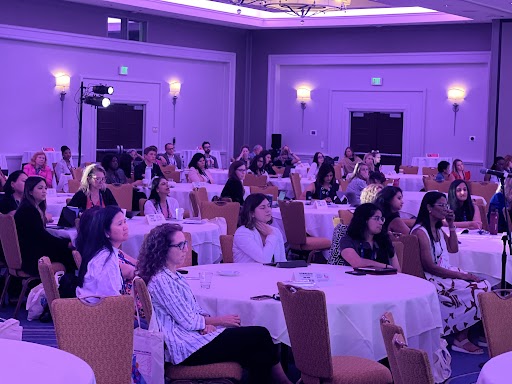
The Menopause Transition and Cardiometabolic Considerations
To build on Dr. Bond’s insights on cardiometabolic concerns during the milestone moments of women’s lives, Chrisandra L. Shufelt, MD, presented her session on how providers can best approach women’s health during menopause. Because the average age of menopause onset in the US is 52 years old, Dr. Shufelt emphasized increasing the focus on women’s wellness because, with an average life expectancy of about 80 years, women can spend almost half their lives post-menopause.
"The menopause transition is a period of symptomatic hormonal and physiological change with important implications for cardiovascular health. It's an opportunity for prevention in terms of lipids, vascular health, metabolic syndrome, visceral adiposity, and other risk factors associated with ovarian aging."
Dr. Shufelt
Infertility, Assisted Reproductive Technology and the Intersection with Cardiometabolic Health
Emily S. Jungheim, MD, MSci, began her lecture on identifying risk factors for future cardiometabolic disease by telling the audience to pay attention to menstrual cycles and dysfunctional uterine bleeding in young women. “When we think of reproductive issues we usually focus on pregnancy, but there’s so much that happens outside of pregnancy. Let’s address risk factors before pregnancy so we can prevent problems later in life,” said Dr. Jungheim. She noted that providers also have an opportunity postpartum to follow up and see how issues from pregnancy may or may not have resolved.
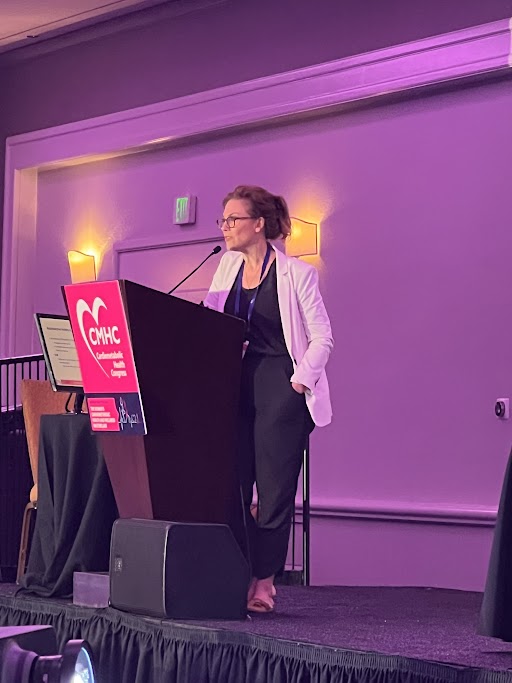
Insights on Overcoming Professional and Personal Challenges
In an uplifting and relatable panel discussion led by Dr. Taub, four of the day’s faculty members returned to the stage to share some personal stories on overcoming adversity, challenges, and barriers as women in medicine. Dr. Taub asked each panelist to share a difficult situation they’d faced – whether personal or professional – and how they navigated that situation to demonstrate resilience.
Martha Gulati, MD, began by sharing her difficult decision to leave a prestigious position because, despite her notions about achieving a certain level of professional success, the role didn’t make her happy. Next, Roxana Mehran, MD, described the dichotomy of being both a physician and a parent, and how her male counterparts didn’t seem as conflicted by those roles as much as she and her fellow female providers did. Past president of the American College of Cardiology (ACC), Dipti Itchhaporia, MD, then described her experience finally achieving the prestigious position leading the ACC as an immigrant woman only to have the COVID-19 pandemic complicate her term as president. Although the pandemic restrictions prevented her from fulfilling many of the in-person initiatives she had planned, she pivoted her approach to host video “coffee breaks” from her own kitchen, in which she virtually welcomed esteemed guests and ultimately reach more people than she would have otherwise. In closing, Payal Kohli, MD, described her sacrifice as a successful physician whose decades-long relationship with medicine meant that she’d deprioritized a romantic partnership, marriage and having children. Despite admittedly being curious about what it would be like to have chosen the more “traditional” path of being a wife and mother, Dr. Kohli assured the audience (and herself) that everyone is exactly where they are supposed to be.

The Importance of Addressing Clinician Wellness
Ramona Master, MD, and Sunny Smith, MD, ended the day’s sessions with a frank and candid discussion on provider burnout, self-care, and the principle that we cannot effectively provide care to others until we’ve cared for ourselves. Both Drs. Master and Smith advocated for the end of the culture of self-sacrifice, particularly because women in medicine overwhelmingly seem to be the only gender subscribing to it.
"You are not trapped. No matter where you work, no matter what the rules are, you have agency. You have choices. You are one of the smartest women to ever walk the face of the earth. You are one of the most empowered and educated women, so don't let anyone tell you that you have to do it their way, because it's just not true."
Dr. Smith
Welcome Reception and Networking
The day’s educational sessions closed with a cocktail hour during which attendees, faculty, and industry representatives mingled and connected. After the networking reception, many audience members enjoyed the rest of the evening on the Laguna Cliff’s sundeck, or dinner at one of the various restaurants on or near the property. Day 2 of the conference begins bright and early tomorrow morning, when yoga on the lawn, hosted by the local yogis at iHeartYoga, will begin at 6:30 a.m! We’ll bring you another recap of the amazing education, wellness activities, and professional development strategies presented from the conference tomorrow!
